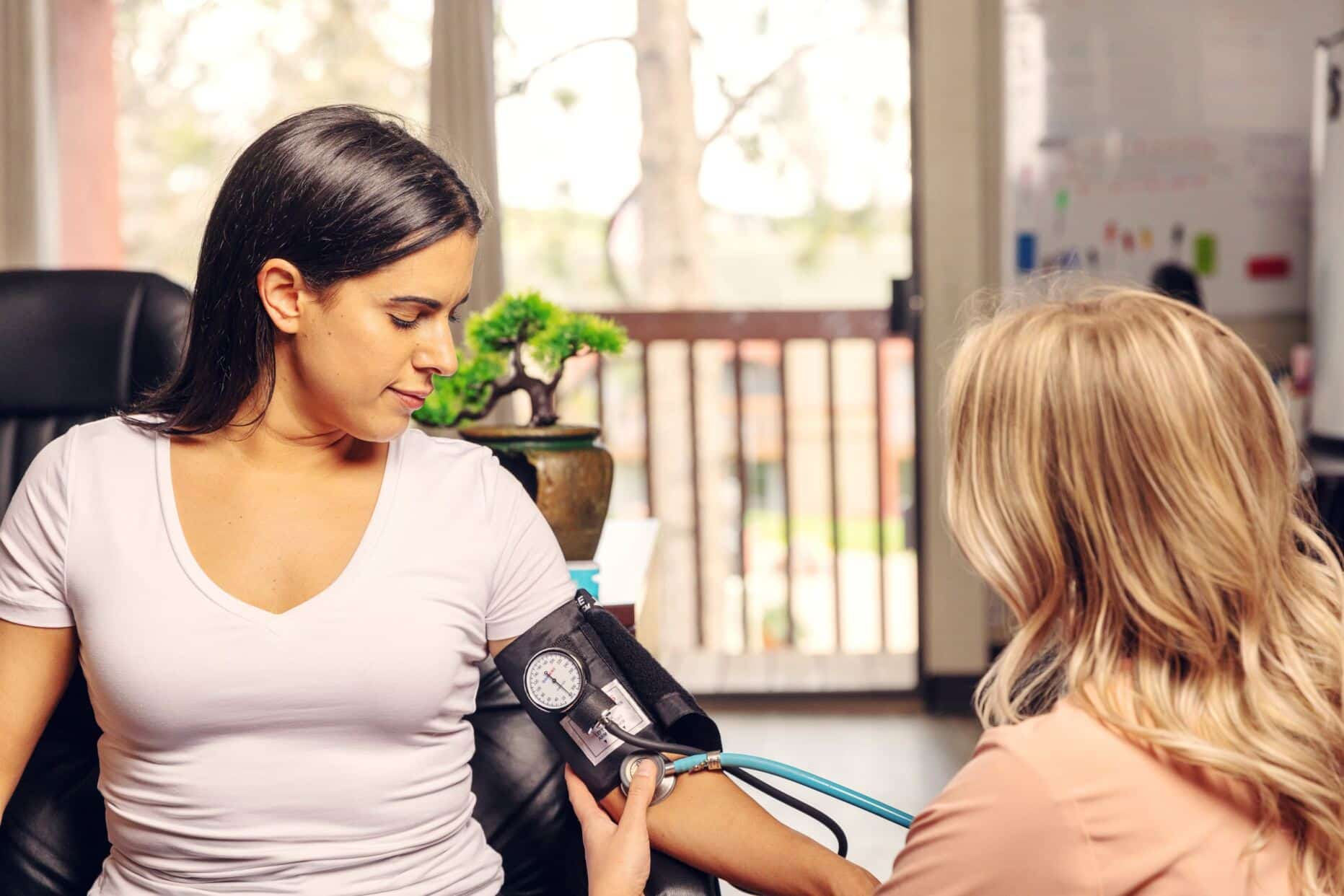Methadone is an opioid medication that seeks to lessen withdrawal in people addicted to heroin or narcotics. It seeks to stop the pain in those going through drug detoxification. The drug is commonly referred to by labels like Dollies, Dolls, Red Rock, Tootsie Roll, and Junk.
While methadone is highly effective, it is also highly addictive. For many, even though it is closely monitored, it can feel like trading one addiction for another. However, supporters of this type of therapy feel that the benefits far outweigh the risks.
When methadone is not being used for overcoming an addiction to heroin and is abused, it can be highly dangerous. People who abuse this medication often experience vomiting and restlessness, and when abused for long periods of time, respiration and lung problems can develop.
Methadone Addiction and Abuse
It’s important to understand that nobody ever starts abusing a substance to become addicted to it. It almost always starts out by receiving a prescription or through recreational use. Addiction happens to anyone. It doesn’t matter who you are or where you come from, addiction knows no boundaries.
Methadone mimics classical morphine-like effects, including analgesia, euphoria, sedation, respiratory depression, decreased heart rate, and physical dependence. Often, when people begin taking methadone, it is to quit a heroin addiction and better their lives. Sometimes, though, people begin taking methadone to experience the opioid type of high without the ability to get high from opioids themselves.
Signs of Methadone Use
Having a loved one addicted to Methadone can be stressful. Here are a couple of red flags that a loved one may be using methadone:
- Tolerance of the Drug
- Fatigue
- Insomnia
- Choosing to take the drug over daily responsibilities
- Chills
- Restlessness
- Lack of Sex Drive
Take The First Step Towards Recovery
Talk to a Intake Coordinator
Side Effects of Methadone
Methadone users can expect to experience the following short-term effects:
- Dizziness
- Dry mouth
- Drowsiness
- Droopy eyelids
- Euphoria
- Nausea or vomiting
- Fatigue
- Difficult, labored breathing
- Blurred vision
- Confusion
- Muscle pain and cramps
- Sedation
- Muscle weakness
Overdose Symptoms of Methadone
The Methadone user should expect the possibility of overdosing. You might find you begin to breathe much slower. You could have a decline in your heart rate. Your skin might turn cold and clammy. Your pupils might become pinpoint. These symptoms are important to recognize. If you or your loved one is on methadone, you should look for these symptoms.
Methadone Withdrawal and Detox
Methadone withdrawal will be a long road for you. You won’t overcome the overdose symptoms of Methadone overnight. You will need to be patient before you clear the methadone completely from your system. Such a process can be made easier with the help of a doctor, who can ease the impact of your withdrawal symptoms.
Your doctor actually may give you methadone to help treat your addiction. It may seem confusing at first. However, your doctor can give you guided use of methadone to alleviate the opiate addiction already in your system. Your withdrawal process may be made safer with the help of a licensed physician.
The physician will give you the necessary guidance. You will likely be weaned off methadone by one or two milligrams. This will help in the war against withdrawal symptoms.
Even more helpful to deal with your withdrawal could be group therapy sessions. You are unlikely to get much understanding from your family members. They will give you that empathy you seek. And they will help you find yourself again.
The Methadone detoxification process begins and starts with you. You must ask yourself why you want to get off Methadone. You must speak to a physician or counselor about why you plan to do this. You should also put together a group of friends and family that can be helpful allies in your withdrawal from the drug. The actual part of quitting will not be so simple for you.
Getting off the drug immediately is not the way to go. Quitting cold turkey can cause withdrawal symptoms that can become extremely uncomfortable. For this reason, it is a good idea to taper off the medication. It will usually take around 5-7 days, and you might have to fight off milder symptoms like unease and fatigue. You will need to reduce your methadone usage by diminishing how much Methadone you take or switching onto buprenorphine after decreasing the number of Methadone milligrams taken.
Methadone Treatment and Rehab
If you’re ready to look into attending rehab for your methadone addiction, it’s likely that you’re ready to make some changes in your life, and this is a positive thing. There are many options out there, so finding a facility that is a good fit for your needs is essential to enjoy the best recovery outcomes.
Whether you’re wondering if your insurance will help to pay for some of the cost of your methadone rehab stay, or you’re wondering what types of treatment options are available and which one is right for you, a call to us can help to answer all your questions and get you started in detox, and then rehab sooner than you might be thinking.
Rehab Treatment Process
- Step 1: Intake – When you arrive at your facility, you will be assessed by the medical professionals to determine your treatment through detox and your rehabilitation program.
- Step 2: Detox – After your assessment or intake, you will be taken to your room, where you can rest and be monitored while you withdraw your drug use. Detox can range from 1 day to a week, depending on the drug of choice and the user.
- Step 3: Rehab – After you finish detox, you will be ready to begin your addiction treatment, which can range from various options. This is when you can meet others, attend lectures, participate in group or individual counseling, and learn the tools you need to stay clean.
- Step 4: Aftercare – When your time at the facility is over, you will have to go back to your life. This can be challenging for many people, but part of your treatment includes aftercare. This is usually outpatient counseling in a group or individualized setting, where you are slowly re-introduced to your life and responsibilities.
Addressing Methadone Addiction
Coming to Terms with Your Methadone Addiction
Recognizing you are struggling with a Methadone addiction is never easy. However, when you’re able to look within yourself and begin to see that life can be fun and you don’t need to get high to enjoy it, it might make the decision to attend rehab much easier. You are not alone. There is help, and you deserve to live a clean, healthy life. If you are the loved one of a Methadone abuser, the biggest challenge will be for you. You will need to first educate yourself on the symptoms your loved one is facing. You will want to share your observations with fellow family members or loved ones. Intervening in your loved one’s life will always be easier with the help of more family members or friends. You will want to contact the addict directly to ask whether they are on methadone. Your single intervention might not be enough, and you might require a group intervention. A group intervention will have lots of family and friends of the Methadone abuser gathered together. The Methadone addict will not be aware you have called this intervention. This is where we can help you in your struggle. We can help you discover what the best treatment facility is while also highlighting the pros and cons of each institution. We will work with you to find what is most comfortable for your loved one, so they are cured of their ailments.
Helping a Friend or Family Member Address Their Methadone Addiction
Payment Options for Methadone Abuse Treatment
There are many different payment options for methadone rehab. In many cases, health insurance will cover much of the cost of attending treatment. Others find that they can enlist the help of loved ones, or even get a loan to cover treatment costs. Give us a call today to find out more.
Medical disclaimer:
Sunshine Behavioral Health strives to help people who are facing substance abuse, addiction, mental health disorders, or a combination of these conditions. It does this by providing compassionate care and evidence-based content that addresses health, treatment, and recovery.
Licensed medical professionals review material we publish on our site. The material is not a substitute for qualified medical diagnoses, treatment, or advice. It should not be used to replace the suggestions of your personal physician or other health care professionals.






